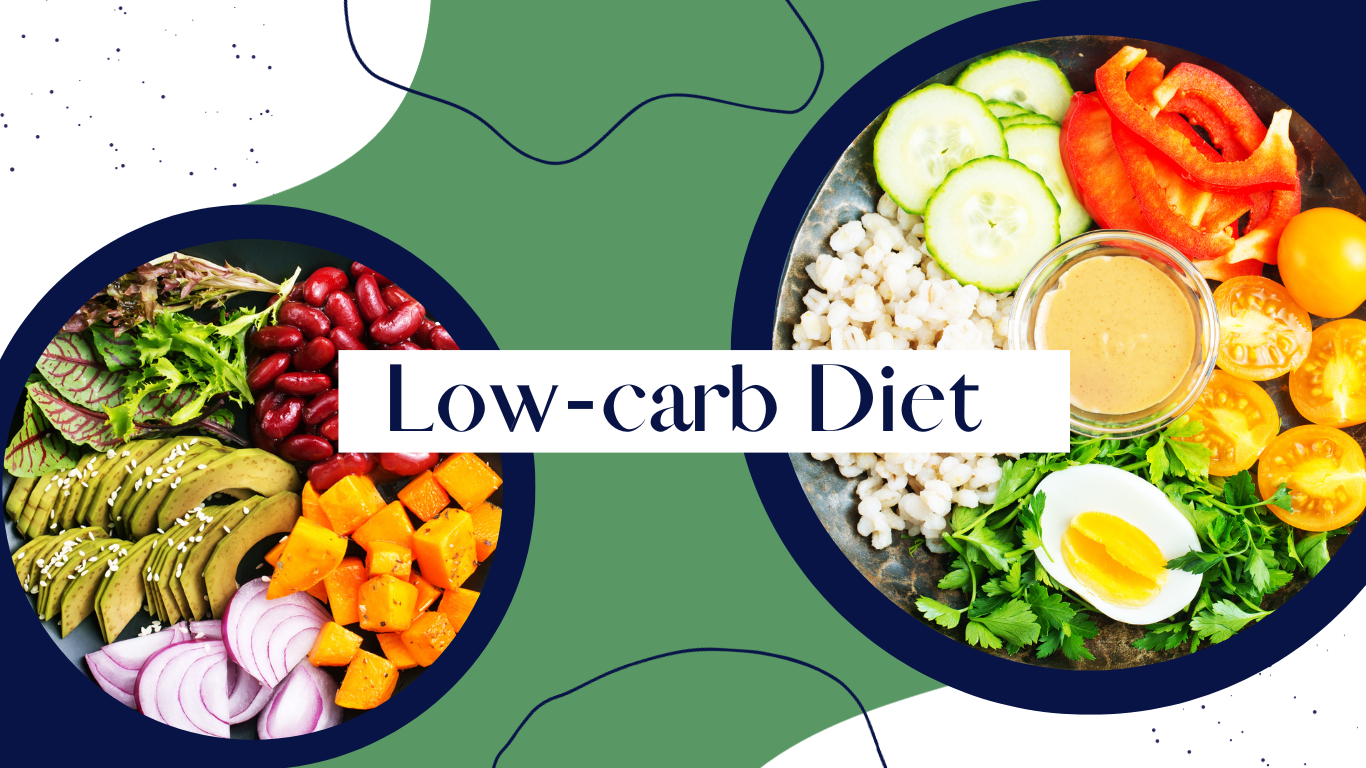
While carbohydrates have been vilified in the dieting world, the truth is that they play an important role in our overall health and well-being. However, reducing our carb intake can have numerous benefits for our bodies, from weight loss to improved energy levels. In this blog post, we'll delve into the world of low-carb diets, discussing their potential pros and cons and even providing a sample meal plan for a week. Get ready to unplug from the high-carb mentality and discover the benefits of going low.
Understanding Carbohydrates: The Good, the Bad and the Complex
Carbohydrates have long been the subject of debate in the world of nutrition. But before we dive into the benefits and drawbacks of low-carb diets, let's understand the different types of carbohydrates. The good carbs, such as whole grains, fruits, and vegetables, provide essential nutrients, fibre, and energy. On the other hand, bad carbs like refined sugars and processed foods offer little to no nutritional value and can lead to weight gain and chronic diseases. Finally, we have complex carbs, which are found in legumes, whole grains, and starchy vegetables. These carbs break down slowly, providing sustained energy and keeping you fuller for longer. Understanding these distinctions will help us make informed choices when it comes to our carbohydrate consumption. Check out my carbohydrates blog post!
https://viceversanutrition.co/blogs/news/macronutrient-carbohydrate
The Recommended daily intake (RDI) of carbohydrates should be 45%-65% of your daily intake. So if you are having 2000 calories you should be consuming 900-1300 calories of which are carbohydrates. Whereas a low-carb diet includes 26% of your daily intake which accumulate to around 130g of carbohydrates. Using your BMR you can then subtract 26% off your total calorie intake, this will give you the total amount of carbs you should be having for a “low-carb” diet.
Exploring the Benefits of a Low-Carb Diet
If you're considering going low-carb, you'll be pleased to know that there are numerous benefits to be gained. One of the most notable advantages is weight loss. By reducing your carbohydrate intake, you can stimulate your body to burn fat for energy instead of relying on carbohydrates. This can lead to a more efficient metabolism and shedding those extra pounds. Additionally, low-carb diets have been shown to improve blood sugar control and insulin sensitivity, which can be beneficial for those with diabetes or insulin resistance. Furthermore, going low-carb can help reduce cravings and hunger pangs, allowing you to better control your food intake. Lastly, many people report increased energy levels and improved mental clarity when they cut back on carbs. So, if you're looking to lose weight, manage your blood sugar, and boost your overall well-being, a low-carb diet may be worth considering.
When selecting carbohydrates on a low-carb diet be mindful of what carbs you are consuming. Choosing complex carbohydrates contains fibre, starches and sugars. Starch and sugar is broken down into sugar molecules in the liver that are then converted into energy when the body requires it. Fibre in complex carbs will help digestion including regulating the body's use of sugars.
Deciphering the Downsides of a Low-Carb Lifestyle
Whilst there are many benefits to adopting a low-carb lifestyle, it's important to also consider the potential downsides. One of the main challenges is the initial adjustment period. As your body adapts to using fat instead of carbohydrates for fuel, you may experience symptoms such as fatigue, irritability, and brain fog. Additionally, a low carb diet can be restrictive and may require careful meal planning and tracking. Some people find it difficult to sustain a low-carb lifestyle in social situations or when dining out. Lastly, cutting out certain high-carb foods like bread, pasta, and potatoes can be tough for carbohydrate lovers. It's important to weigh the pros and cons before committing to a low-carb diet to ensure it aligns with your individual preferences and lifestyle.
Try this one week low-carb diet plan
Day 1: Start your day with a protein-packed omelette filled with veggies. For lunch, enjoy a salad with grilled chicken or fish. Dinner can be a delicious steak with roasted vegetables. Snack on nuts or a cheese stick throughout the day.
Day 2: Begin with a Greek yoghurt topped with berries for breakfast. Have a grilled chicken Caesar salad for lunch and enjoy a grilled salmon with asparagus for dinner. Snack on celery sticks with almond butter.
Day 3: Start your day with a spinach and mushroom omelette. Have a turkey and avocado wrap for lunch and enjoy a bunless burger with a side salad for dinner. Snack on cucumber slices with hummus.
Day 4: Begin with a smoothie made with spinach, almond milk, and protein powder for breakfast. Have a prawn stir-fry for lunch and enjoy grilled chicken with broccoli for dinner. Snack on hard-boiled eggs or beef jerky.
Day 5: Start your day with a chia seed pudding topped with nuts and berries. Have a tuna salad wrap for lunch and enjoy a lemon herb grilled chicken with courgette noodles for dinner. Snack on pork scratchings or olives.
Day 6: Begin with a protein shake blended with almond milk and a tablespoon of nut butter for breakfast. Have a Cobb salad with grilled chicken for lunch and enjoy grilled prawns with cauliflower rice for dinner. Snack on cheese cubes or cherry tomatoes.
Day 7: Start your day with scrambled eggs and smoked salmon. Have a turkey and cheese roll-up for lunch and enjoy a grilled steak with roasted Brussels sprouts for dinner. Snack on sliced bell peppers with guacamole.
Remember to drink plenty of water throughout the week and listen to your body. This one-week plan is just a starting point, and you can adjust it to suit your tastes and preferences. To transition into a low-carb diet you can slowly drop down your carbohydrate intake by 25-50 grams daily throughout the week for a smoother ride. Get ready to embrace the low-carb life and reap the benefits it has to offer.
Final Thoughts: Is the Low Carb Life for You?
If you've made it this far in the blog post, you're likely intrigued by the idea of a low-carb lifestyle. But before you dive headfirst into cutting out carbs, it's important to consider whether it's the right fit for you. Going low carb requires commitment and discipline, as well as a willingness to adapt your eating habits. It's crucial to think about whether you can sustain a low-carb lifestyle in the long run, especially in social situations or when dining out. Additionally, if you're someone who loves bread, pasta, and potatoes, eliminating these high-carb foods may be a challenge. However, if you're motivated to lose weight, improve your blood sugar control, and boost your energy levels, then a low-carb diet may be worth exploring further. Remember, the key to successful long-term weight management is finding a diet that works for you and aligns with your individual preferences and lifestyle.
Thank you for reading this blog post, have a wonderful day!
